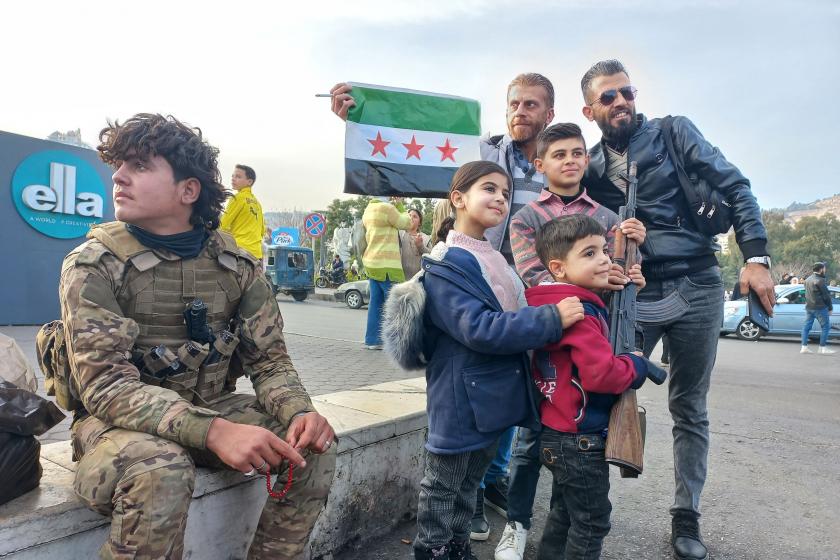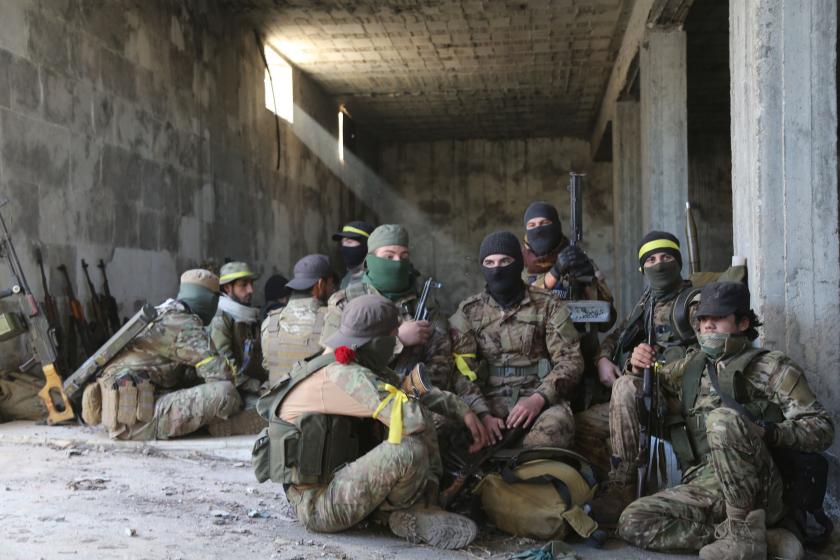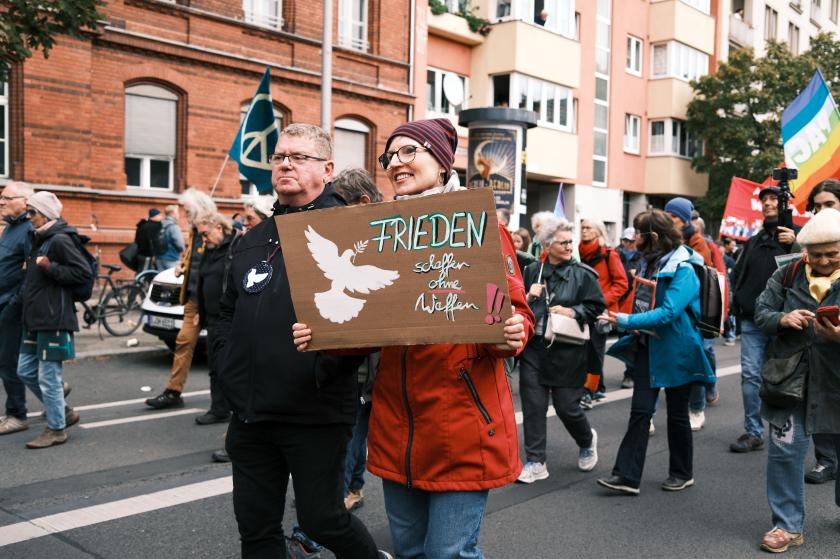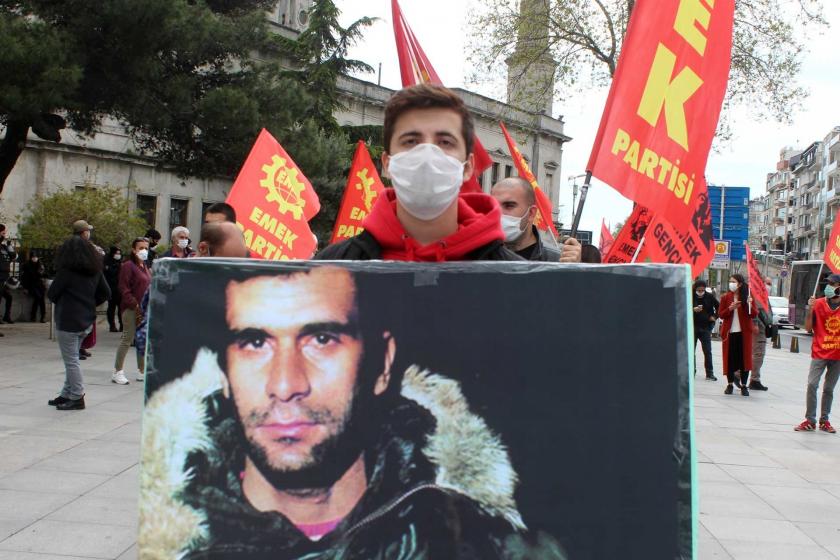‘People’s Alliance is for the interests of the two parties not the country’
Threads that broke off between the AKP and MHP are the nationalist sensitivities of MHP and AKP’s sensitivities over being indigenous and national.
03 December 2018 06:57
Threads that broke off between the AKP and MHP are the nationalist sensitivities of MHP and AKP’s sensitivities over being indigenous and national.

Serpil İLGÜN
İSTANBUL
Prior to their 23 October group meeting, MHP General Chair Devlet Bahçeli brusquely announced that the alliance in the local election had ended and President and AKP General Chair Erdoğan had subsequently said, “If so, everyone on their own way.” However, there was a reversal on 21 November and the People’s Alliance’s two partners reached fresh consensus on contesting the local election together.
It is regarded as a certainty that this gesture on the part of Bahçeli, who, just as when he had announced the ending of the alliance in the local election, was given a rapturous standing ovation by party members when he said they would continue the alliance “for the perpetuity of the country and the people,” will leave the MHP with more towns than prior to 23 October.
With discussion of who is to stand where rapidly replacing questions as to which factors were instrumental in this one-month alteration in the counter positioning of the AKP and MHP, it is also accepted by AKP columnists that Bahçeli’s decisive role in the alliance has strengthened. A further “anxious” question that the same circles pose is what other advantages the increasing cost of defending the ruling body’s practices in many areas, not least the economic crisis, will confer on the MHP.
Erdoğan’s mayoral candidate profile for twenty provinces including Izmir and Ankara, the snags being experienced in Istanbul between Binali Yıldırım and the party organization, the CHP’s talks with the Good Party and Felicity Party...
I spoke to academic Ahmet Murat Aytaç about key topics surrounding the local elections being encountered in a climate in which operations targeting the HDP have become routine and in which the European Court of Human Rights ruling on HDP former Co-Chair Selahattin Demirtaş further augments the number of unrecognized court rulings.
Aytaç, who was dismissed from his post at Ankara University Faculty of Political Science for having signed the peace declaration, has authored the books The Family’s Adventure: The Formation of the Idea of the Modern Family in Turkey and The Spirit of the Masses: Imaginations of Crowds in Political and Social Theory.
Let’s start with how you size up the People’s Alliance’s decision to continue in the local elections. Why was the alliance formula reverted to? Have the skirmishes that played out between the AKP and MHP come to a resolution in the month that has passed since then?
The disagreement in the ruling block first became manifest with Bahçeli’s proposed amnesty. The arguments following the Council of State’s Student Oath ruling, in turn, ended with the proclamation of the breaking up of the alliance. At one end of the broken thread are the nationalist sensitivities of the MHP base, while at the other end are the AKP’s sensitivities over being “indigenous and national” whose content the AKP has deliberately left vague. Following the making of a number of harsh proclamations, the parties lent a concrete appearance to their positions with recourse to the following symbols: Our Oath versus the Independence March.
However, the position Bahçeli and Erdoğan have reached today despite the mass of rhetoric quite rightly engenders confusion. The following question is on everyone’s mind with regard to this: “Given that you were going to recreate the alliance, why this posturing?” In answering this, it is necessary to bear in mind that there may be different reasons for each party.
What kind of reasons?
The MHP may have felt the need for such outbursts to get over the jolt it underwent with the breaking away of the Good Party and to correct the “sidekick party” image that grew ever stronger in the course of the People’s Alliance. This is because it becomes possible both to strengthen ties with the existing vote base and to chime in with the over stimulated nationalist sensitivities of voters in the right and left voting blocs.
However, apart from practical reasons that may be valid for both parties such as concerns over votes, I believe we must take into account a structural factor that was instrumental in this clash. For some time we have witnessed the axis of politics in Turkey being redefined in terms of being indigenous and national. The disagreement I have formulated as the Student Oath versus the Independence March extends to this indigenous and national accord that underpins the ruling block currently governing the country. It has shown one more that what the AKP understands by being indigenous and national may not be the same thing as the MHP understands.
How do the AKP approach indigenousness and nationalness?
Being indigenous and national was an ideological synthesis that responded to the needs arising in the AKP’s transitional period to the presidential system. This synthesis essentially aims to mobilize the force it needs to maintain the AKP’s existence as the ruling body in opposition to the political pressure of the new international environment that came into being along with the Arab Spring. The Arab Spring exerted an influence over our indigenous circumstances on two different levels. First, there is a level that had its inception in the corralling of the democratic energy of the popular movements that emerged in this process by the ruling machinery of Islamist politics. The global ruling apparatus that subsequently came into action corralled this energy once more and, if you will, encased it in concrete. In Egypt, the Muslim Brotherhood that came to power having appended the people’s demands for freedom to its own political programme paralleling the pluralist conception of democracy in Turkey was toppled in a military coup. Erdoğan considered this development to be the first link in a chain of military coups that would extend to him.
Second, there is a level that saw its inception in the contagious effect of the mass movements that became widespread in the Arab Spring. Erdoğan once more perceived the social dynamics that swept into motion through the Gezi process in Turkey to be part of the same international plot. By further tying the Fethullahists’ 17-25 December operations into this process by a strange logic, the soil on which the indigenous and national ideological synthesis would bloom was brought into full readiness. However limited, the Gulenists already had a kind of international experience with the Islamic world from the activities they waged in Central Asia. The Brotherhood, which redefined its own mission through the “interreligious dialogue” paradigm developed following 11 September, had acquired an ever more cosmopolitan structure. Being indigenous, in this context, spoke of being from here and acting with respect for the cognitive and cultural boundaries that the Ottoman heritage had drawn. This view speaks of indigenousness as a criterion that the AKP will use to distinguish friend from foe in policies conducted through religious brotherhoods in Turkey. As to being national, this aimed to counter political demands based on human rights and universal democratic standards in Turkey, including the Kurdish problem, and criticism levelled against the AKP from this standpoint. Thus, demands for rights could be rendered ineffective as unjustified attitudes that are non-national, non-indigenous if democratic criticism and foreign-sourced or externally rooted.
So, what does the MHP understand by indigenousness and nationalness?
I think there are two basic components that persuade the MHP to express itself on the basis of a synthesis of this kind. One of these is the MHP’s organisational problems, while the other is the political landscape that emerged from the 7 June elections. Were I to start from the second, the emerging of the HDP as Turkey’s third largest force in this election appeared to have won MHP people over to the necessary constitutional changes for the transition to a new system of government. Another factor that inclined Bahçeli towards an alliance of this kind was the unmanageable stage now reached by the intraparty opposition caused by the successive electoral failures experienced by the MHP. Partnership with state power and using state means and facilities while wrestling with conditions of political rivalry both within the party and with other organized forces is a tendency we have long since been able to observe within the MHP’s operating codes. When the BBP separated from the MHP, at that time Türkeş, too, tried to surmount the effects of this breakaway by moving close to Özal. Today, in a similar fashion, we sense the ever-increasing influence of ultranationalists in the state bureaucracy everywhere. At the end of the day, the facilities that partnership in power affords furnish the MHP with certain opportunities to compensate for the losses it has suffered in the political arena. We have essentially in this way pointed to a reason that also explains, as much as the People’s Alliance’s points of fragility, why this alliance is today indispensable to the MHP. Let’s not forget that this alliance is formed through the combination of weak points as much as strong points.
Do you think it was the AKP’s or the MHP’s weakness that weighed more heavily in the decision to revert to the alliance? Because certain interpretations have it that it was Erdoğan who shifted position out of concerns that the effects of the economic crisis would cease to be surmountable. While, according to others, the MHP could not risk the decline/failure that it would suffer in elections it contested on its own.
Both were influential, but you need to note that we cannot observe any compromise in the AKP’s stance on issues such as the general pardon and the ruling on our oath that gave rise to the disagreement. As such, it then becomes automatically apparent who conceded to the alliance. I think that by looking at the affair this way we may have responded to the interpretations that have been made. On the other hand, both parties have certain losses and gains from these oscillations. I thus think they have done a good job from their point of view, even if not for the country!
How do you react to Erdoğan fielding the existing curators as candidates in Diyarbakır and Hakkari? What is the purpose of this choice that will further consolidate the HDP electorate? What kind of message is being given to the Kurdish people?
I think by this means the aim is through a public vote to legitimize and dispel the controversy over a manifestly unlawful implementation that was started with the process of appointing curators. “Being elected” is of vital importance among the sources of the AKP’s ideological legitimacy. In transforming the state’s structure with such notions as criticism of tutelage, civilianization or normalization, the AKP essentially premised itself on a clash between the elected and the appointed. It may thus wish to have the appointed reapproved in an election conducted under normal conditions.
Another reason for fielding the curators as candidates may be to nullify the meaning the HDP municipalities have for long years imbued politics with. The AKP has voiced its criticisms regarding the use of municipal resources as a means to substitute for cultural autonomy practices at the local level. Accusations of municipalities “engaging in politics instead of collecting rubbish” have always been justified with reference to certain activities such as native language courses and multilingual municipal operations. The fielding of curators as candidates may also stem from the AKP’s need to get the local people themselves to approve the “service-focused municipal operations” approach in the manner it proposes.
In fact, through an election dressed up as if it were an opportunity for a solution, politics is now being depicted as if the source of the problem and local autonomy practices, in turn, as if proof of separatism. Indeed, when the Kurdish problem is at issue, the thing we call a problem in one period can later be portrayed as a solution or, conversely, what we call a solution as a problem. Maybe the first issue that our quests for a solution must address arises out of this solution-problem paradox.
The MHP is alleged to have asked for provinces and sub-provinces outside Adana, Mersin, Manisa and Osmaniye in return for not fielding candidates in the three big provinces. Will AKP and MHP candidates come head to head in the remaining regions? How will the friction created in local organizations by contesting the election jointly be assuaged?
I do not imagine they will come head to head. This has brought to my mind an argument that the AKP introduced into politics and that has increased in value in parallel with the increasing gravity of the Kurdish question. The AKP asserted for many years that it was the only party that could field candidates everywhere in Turkey. And for this reason, it kept praising itself as the embodiment of Turkey’s unity and togetherness. I cannot fully anticipate what Erdoğan’s forward-looking calculations in this regard were from today’s standpoint. But, in these terms, I regard with a sense of irony it's being forced to withdraw candidates from certain constituencies or its selecting candidates in a way that will circumvent the staging of a real contest. It has seemingly become evident that is no longer the party of Turkey, if not in the context of the HDP and Kurdish voters, at least in the context of the MHP and ultranationalist voters. This reminder may be well placed when it comes to the failure to field candidates throughout Turkey!
A further topical matter for debate is the candidacy profile for twenty towns that Erdoğan has announced. Why has Erdoğan expressed a preference mainly for former ministers, civil servants or academics?
I take that to be a reflection of the decrease in the relative importance of the cabinet and parliament within the new system of government. The decline in the autonomy and relative value of parliament, ministers, etc. under the presidential system may enhance the value of mayoral positions that conjure up relatively autonomy and strength.
It used to be more important to field strong candidates in places like Ankara, Izmir, etc. These places were regarded as being like strongholds for the political parties in general elections on account of the large populations they were home to and the contribution municipal services provided here would make towards a general election was regarded as being an important parameter. While now this situation has been compounded by the greatly enhanced attractiveness of a mayoral position for people who are ambitious and wish to have an autonomous political career because municipalities at least represent a space that is relatively more sheltered from Erdoğan’s powers and might as head of state. In saying this, I am most certainly not ignoring the drawbacks in terms of municipalities to which curators have been appointed or the mayors whom Erdoğan forced to resign, either. However, there is nothing I can do apart from hope that such practices are “exceptional cases” even under Erdoğan’s rule.
How are you following the CHP’s efforts to revive the Nation Alliance?
I don’t think the CHP has a chance this time of establishing an opposition coalition like in the general elections.
Why?
The first reason is that in local elections, as opposed to general elections, constituencies have a self-sufficient structure. The second is the possibility that an opposition alliance that excludes the HDP may, as opposed to the general election, be more destructive this time. The HDP’s ties with its voter base are very strong. An alliance strategy that does not include this strength in the equation can be considered clueless as to the strategic framework that influences electoral behaviour.
The CHP’s shift towards right-wing, nationalist candidates such as Mansur Yavaş in Ankara has once more courted criticism. According to the CHP, since 31 March is of very critical importance, the candidate who will cause attrition to the AKP must be fielded in that town, be they conservative or be they nationalist! What do you say?
Recourse will probably be made to this means again. At one time, everyone saw Mansur Yavaş as an alternative in view of the negative motivation that Melih Gökçek created. Today the same name is being touted. What is wrong here is even if Yavaş wins the CHP will still be deemed not to have won. There is saying, you know, that goes something like, “The vanquished on this road is deemed the victor.” Here, the exact opposite of what is said applies: “The victor on this road is deemed the vanquished!”
If a candidate who does not think like you and has no connection with your political line wins, will you have won? For sure, I am not proposing a rigid and moralistic framework in which opposition politics are unable to display any strategic flexibility. But, when it comes to “opening to the right” or “finding right-wing candidates,” the existence of a trend of this nature not just in the CHP but among the left opposition as a whole shows that the issue is not restricted to tactical and strategic preferences.
It is important to see that there is no structure or natural proclivity whereby voters’ voting preferences are predetermined. In today’s electoral processes, the connection between world views and electoral behaviour is not so strong. Increasingly autonomous voters make their voting preferences with reference to countless strategic considerations peculiar to them. And this shows that mechanisms that guide voting preferences are actually more important than things seen as being voters “natural tendencies.”
The shift to the right is justified in terms of: “Society is conservative. So, if we field a candidate from the right, we’ll conquer the voter’s heart and win!”
I am not very sure this is right. You make mosques everywhere, you inscribe nationalist slogans all over the place and inject religious knowledge as undisputed truth at nursery schools into children who have not yet learnt to read and write... Then you portray conservatism and piousness as being society’s natural leaning! This does not appear to me to be a very correct view.
Instead of this, I wish again to draw attention to the existence of a political will that is constructing a society to have conservative and right-wing leanings. Not only the electoral rules and opportunities to participate in politics but at the same time the conditions of political competition, are taking shape as this will wishes.
Hence “society” is not an objective reality that is independent of politics and determines it but a dependent fiction that is constructed within the political struggle. Accepting this fiction as it is and abandoning political claims amounts to resignation from the struggle. This is the reason I speak of being deemed vanquished even if it wins. It is of course not on its own wrong to field a candidate from the right or to make reference to the rhetoric of this kind in this or that election. On the other hand, for this to take the form of a tendency is exceptionally dangerous. What must be done to reverse this tendency is to open more to the left not the right and find ways for making the dream of a libertarian and just society predominate.



